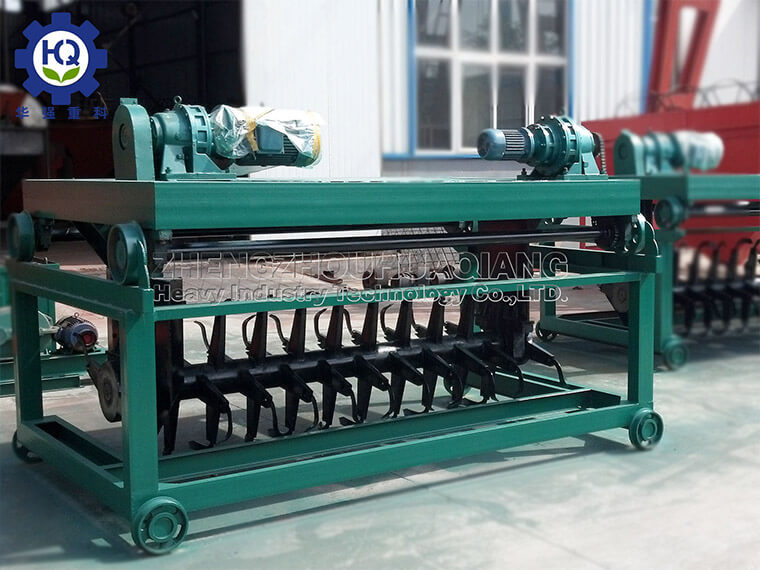In the context of today’s emphasis on environmental protection, organic fertilizer turning machines play an indispensable role in improving environmental efficiency in fertilizer production lines.
Firstly, in reducing odor emissions, the organic fertilizer turning machine plays an indispensable role. In the traditional fertilizer fermentation process, due to the accumulation of materials that are not turned over or not turned over in a timely manner, it is easy to produce a large amount of unpleasant odors, which have a negative impact on the surrounding environment and residents’ lives. The organic fertilizer turning machine accelerates the decomposition and oxidation process of organic matter through regular and reasonable turning. During this process, the odor substances are decomposed and transformed by microorganisms, greatly reducing the production of odors. At the same time, the flipping action of the flipping machine allows for air circulation inside the material pile, making it difficult for odors to accumulate and further reducing the range of odor emission.
Secondly, the flipping machine helps to control dust pollution. During the fertilizer production process, the flipping and transportation of materials can easily generate dust. Dust suppression measures are usually considered in the design of organic fertilizer dumpers, for example, some dumpers are equipped with spray devices. In the process of turning the stack, the spray device will spray water timely to make the dust settle and reduce the dust flying into the air. Moreover, a reasonable flipping method and speed control can also reduce the dust generated by violent flipping of materials, effectively improving the air quality in the production workshop and surrounding environment.
Furthermore, from the perspective of resource recycling, the organic fertilizer turning machine promotes the efficient conversion of organic waste. It improves the efficiency and quality of converting organic waste into organic fertilizer by optimizing the fermentation process. Livestock manure, agricultural and forestry waste, and other materials that may have been considered garbage, are fully utilized with the help of a composting machine and turned into high-quality organic fertilizers rich in nutrients. This not only reduces the pressure of organic waste on the environment, but also achieves the recycling of resources, which is in line with the environmental protection concept of sustainable development.
In addition, the efficient operation of the organic fertilizer turning machine reduces energy consumption. Compared to traditional flipping methods, modern flipping machines adopt advanced power systems and energy-saving technologies, which consume less energy while completing the same amount of work. This has to some extent reduced carbon emissions during fertilizer production and made a positive contribution to environmental protection.